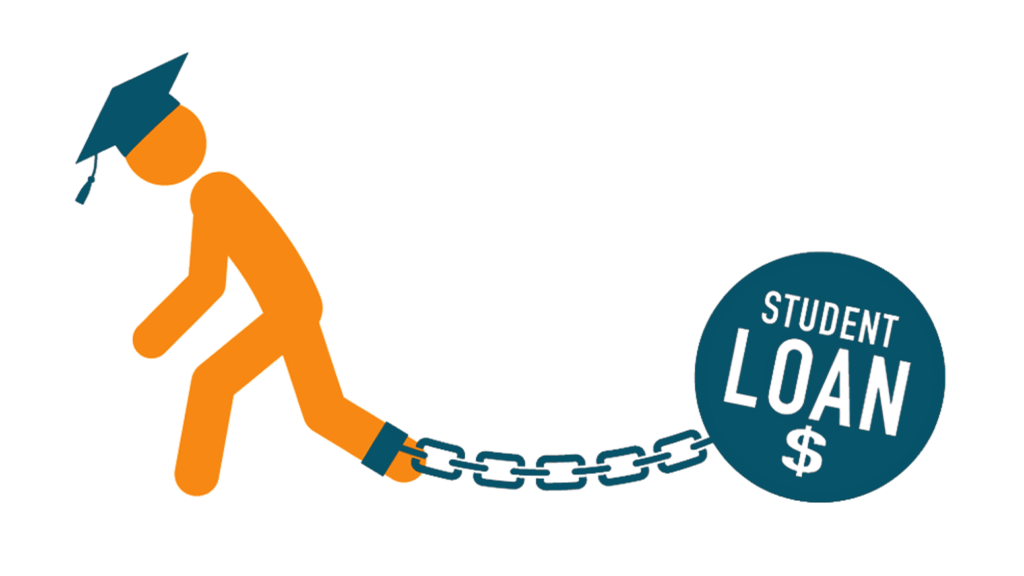The American Dream is underpinned by a sense of optimism about the future. Even coming from the poorest of circumstances, Americans in general to this point have believed that they can work their way upward if they just keep their heads down and get up and go to work every day.
I believe that this sense of general optimism may be changing among the Millennial generation and younger. Two of the main factors, I believe, are student loan debt and climate change. The debt is a real issue to those that have it. Climate change is under debate, but a lot of young people believe with religious fervor that our future is doomed due to climate change. So, if you owe tens of thousands of dollars of student debt on which you will be paying heftily every month for 10 years or more, and if you believe we only have a few years left to live in our current state of affairs, then one can see how one can become pessimistic.

Empathy
I have a high level of empathy for those who have a lot of student debt. This article from studentloanhero.com has the statistics, which I summarize as follows:
- Americans owe $1.56 Trillion (with a T) of student loan debt.
- Average debt per borrower is $29,800.
- 11.5% of student loans are 90 days or more past due.
- 75% of graduates from private colleges have loans with an average balance of $32,300.
If you are among any of these statistics, I feel your pain. If you are lucky enough not to have student debt issues, imagine if you did, and the changes in your life that you would have to make. Yes, college graduates have a lower unemployment rate and higher salaries than do non-graduates, but at the cost of student debt that puts a crimp on what you can do once you graduate, especially if you are a stand-up person and pay the debt off like you are supposed to.
Resulting Behavior
I think peoples’ behavior has changed due to this pessimism about the future. For one example, I think the slowdown in the housing market and the level of home purchases over the past year is in no small part due to higher student debt and pessimism due to climate change (among other factors). Think about it: We have almost full employment, with salaries rising (albeit at a lower rate than some think they should), and mortgage rates still low, though slightly higher than they had been for the previous several quarters. Yet, the headlines in 2018 were about a housing slowdown. Why? Because it is difficult to want to commit to a 30 year mortgage when you still have 10 years to go to pay off your student loan, when you are stretching to make your down payment, when maybe you are not overly thrilled with the inventory of housing out there to buy, and when you aren’t sure you will even have a job 15 years from now as the climate is changing. I get the pessimism. Low birth rates, as well: It’s difficult to think about paying to have and raise a child if you are already in hock to the government for your college education. As a result, the US is following the pattern of most Western European nations and Japan, with domestic birth rates below 2.0 per household, well below the volume we need to sustain ourselves.
IMO
The solution? We as a society need to change our collective elitism about college. Some people should pursue alternative careers that don’t necessarily involve college, including trade careers and apprenticeships. Others should look at much-cheaper junior colleges as an alternative or a stepping stone to a Bachelor’s degree. Those of us who are lucky enough to have achieve our Bachelor’s and/or are not weighted down by student debt must change our elitism and value these alternative education experiences and be more understanding of what students need to do now in order to get the sheepskin. Regarding climate change, politicians need to stop with the dire predictions made to enhance their personal political profiles. Instead, let’s have an honest discussion about what practical and affordable changes we can make that are out there within reach and that can benefit everyone. We need to keep the sense of optimism that has driven our economic and social engine for all of these years, and we need to do so despite the factors such as high student debt and dire warnings due to climate change that stand in our way.
